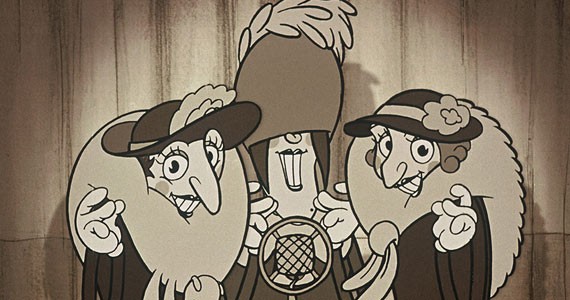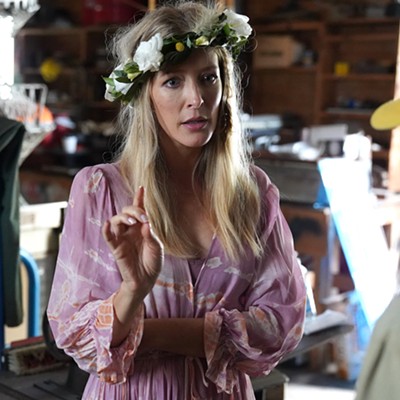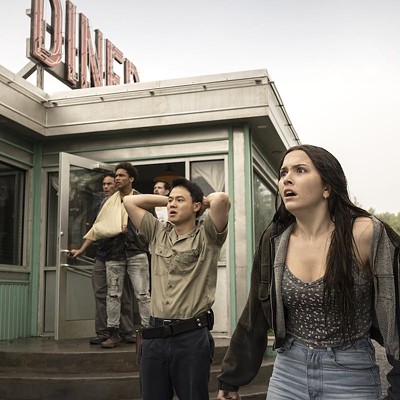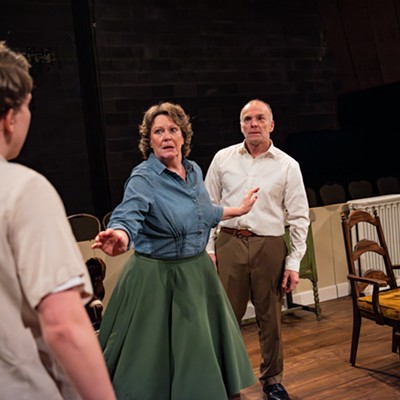If you've always wanted to start a band but you don't know how to play an instrument, or, if you have an unused vacuum collecting dust in your closet (is that irony?), then take a page from the book of Benoît Charest. Charest is the composer behind the music of Les Triplettes de Belleville, an utterly charming and strange cinematic experience, the strangeness and charm of which owes much to Charest's jazzy, Django-inspired score. Reinhardt, not Unchained.
If you've never heard of it, the animated 2003 Academy Award nominee garnered huge praise upon its release for its slight surrealisms and unconventional storytelling. Next Tuesday you can catch a screening of the film accompanied by a seven-piece band lead by Charest.
A Montreal native, Charest says that if it's a question of the chicken or the egg, before the movie, there was its theme song. "It all started with the meeting of Sylvain [Chomest], the director—I met with him in his studio and had him listen to some music, and there was a little tune I wrote for another film which I had left on my demo, so we worked on that. Eventually it evolved into the 'Belleville Rendez-Vous'," he says. "I started investigating and trying different things—there was a Hoover at the studio, and I tried for a while to get sounds out of it and I finally did."
And it didn't stop with Hoovers or Frigidaires. "We used everything except the kitchen sink," Charest laughs. "Even that I think I might have used on a track...it all started with Sylvain really liking the show STOMP," says Charest. "He wanted to do something with that but with the old ladies."
If you're wondering what the influence of musicians like Josephine Baker sounds like alongside a penchant for household appliances, well, it's exactly as you imagine. Percussive, swinging, plucky—and certainly French, it's the eerie, jiving antithesis to whatever dubstep machines are generating these days.
Charest expresses his hesitation when it comes to making music on machines in his métier. "I haven't figured out yet if the computer is a good thing or a bad thing. For some stuff it seems so fast and helpful, and for others it just kills the whole thinking process," he says.
"Before, you had to concentrate on the structure and harmony before you could produce anything. Now what we are asked to do sometimes is give an idea of what [the score] will sound like when it's finished before it's even finished," says Charest. "That was my third or fourth film, but you know, we're always learning—the way things are done are never set within this world of constant software update."
Otherwise, Charest says the scoring process was pretty standard. "It was, let's say, a good canvas to let go of my quirkiness," he says.
When asked why he thought the film was still so popular, he made a fitting reference to cooking. "I find that some of the newer big blockbuster animation films all have the same style, in terms of humour, timing, and even the faces and expressions on the faces. It's like a recipe. I think that recipes work, obviously—people buy and a lot of people like to see the same thing over and over again...but I think that maybe what draws people to the Triplets is the fact that it's singular and particular. It avoids any comparison with other films, you know? And that makes it stand out in a different way."
Triplets of Belleville 10th anniversary
w/Sonic Silents with Sageev Oore
Festival Tent, Lower Water and Salter Street
Tuesday, July 9 at 8pm, Free















